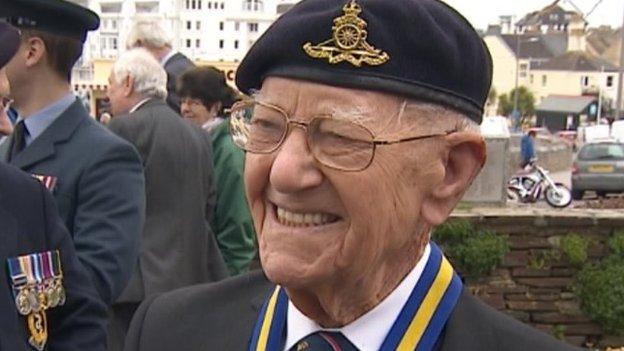Dunkirk flotilla sails to France for 75th anniversary events
- Published
Winston Churchill called the Dunkirk mission "a miracle of deliverance"
About 50 small boats involved in the evacuation of allied troops from the beaches of Dunkirk in World War Two have sailed from Kent to mark the 75th anniversary of the rescue.
The craft, escorted by RNLI and Royal Navy vessels, arrived in the French town at 16:00 BST.
Operation Dynamo, between 26 May and 4 June 1940, saw hundreds of boats of all types rescue 338,000 troops after they had retreated from Nazi forces.
A return takes place every five years.
The Association of Dunkirk Little Ships (ADLS) has organised sailings across the English Channel since 1970 in honour of the fishing boats, pleasure yachts and lifeboats that took part.
In 1940, their crews had heeded the government's request to help British, French and Belgian troops stranded after a German advance.
Historians say if the evacuation had not been a success, the allied war effort may have been critically damaged.
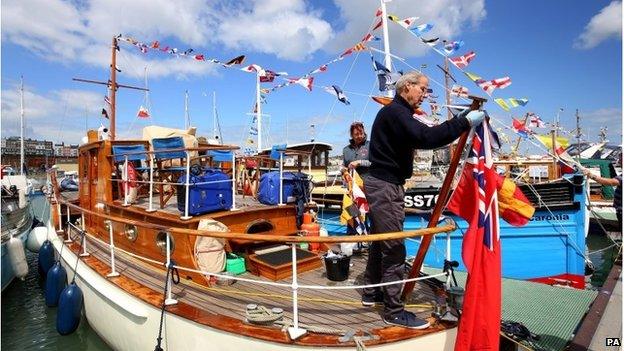
Hundreds of small vessels crossed the Channel between 26 May and 4 June 1940
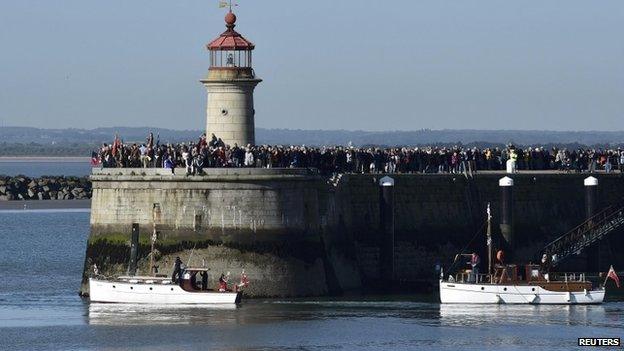
The vessels taking part this year will return on Monday
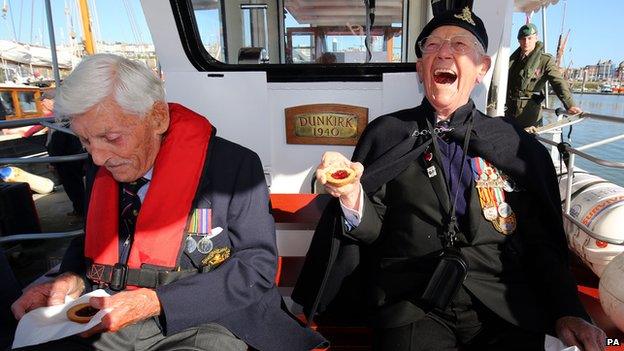
Dunkirk veterans Michael Bentall (L) and Garth Wright on board the Princess Freda
Veterans return
The flotilla left Ramsgate on Thursday morning, escorted by HMS Ranger and HMS Trumpeter, with the ADLS's honorary admiral, Prince Michael of Kent, on board for the journey.
Two veterans of the Dunkirk evacuations were on the Princess Freda, a 63ft (19m) Thames passenger vessel that ferried soldiers to a waiting navy destroyer.
One of those was 94-year-old Michael Bentall, who served with the 4th Battalion, Royal Berkshire Regiment, and has travelled from Canada for the commemorations.
Mr Bentall described the event as "quite emotional really. You put on a laughing face but it is not a laughing matter really."
Garth Wright, 95, from Plymouth, thought he would never see the white cliffs of Dover again.
"I can remember everything as if it were yesterday," he told the BBC.
About 10 other veterans are expected to attend events in Dunkirk.

Reliving memories
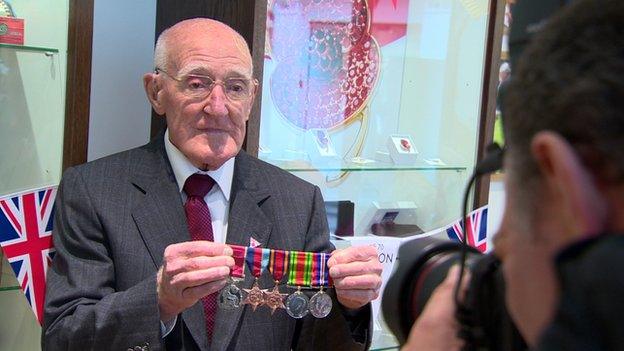
Robert Wright served in a Welsh regiment during the war
Robert Wright, 92, from north Belfast, was a teenage soldier serving in a Welsh regiment at the time of the Dunkirk evacuation.
He described the scenes on the beaches as "a shambles".
"They were going down to the shore and if they spotted a boat coming in, anybody would be dashing out," he said.
"There were people there supposed to organise, but half of them just wanted to get out themselves.
"Most of the regiments there tried to keep their men together, but towards the end - when they saw boats coming from England to pick them up - they weren't waiting on the boat docking - they were trying to meet it halfway."

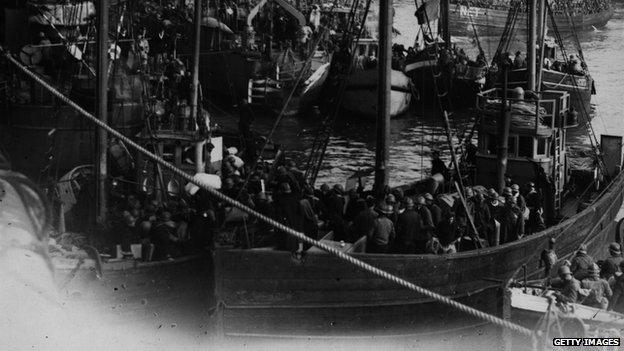
The boats transported allied troops back to Britain in 1940
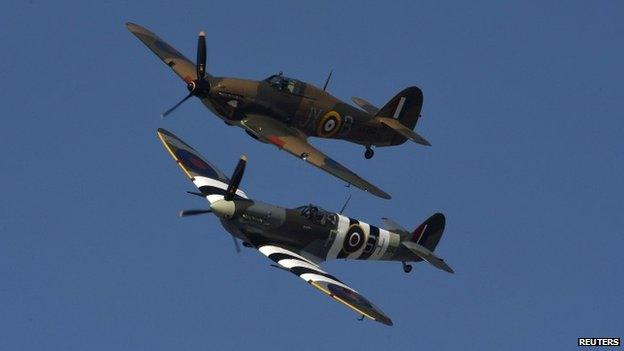
British Hurricane and Spitfire planes performed a fly-past on Thursday
A service at the British Memorial at the Dunkirk Military Cemetery will take place on Friday, followed by a reception and presentation for ADLS skippers at the town hall.
The official service to mark the mission will take place at the Allied Beach Memorial on Saturday, and there will be a parade of military vehicles and bands.
On Sunday, a memorial plaque will be unveiled to commemorate the MV Crested Eagle, a paddle steamer involved in the evacuation, which was bombed with the loss of 300 lives.
The ADLS will also hold a commemorative service on the quayside in Dunkirk next to its boats, which will return to Ramsgate on Monday.
They now all carry a plaque awarded by the ADLS and fly its flag.
Ahead of the sailings, services were held in Ramsgate, at the Sailors' Church and harbour.
The Bishop of Dover praised the ordinary people who had manned the "ramshackle fleet" and who answered the call to "serve and save".
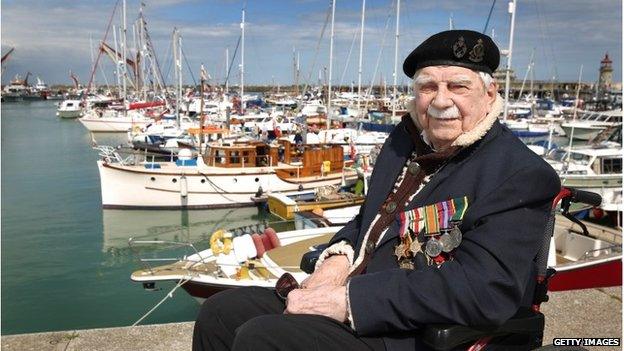
Veteran Ted Oates was among those watching the flotilla
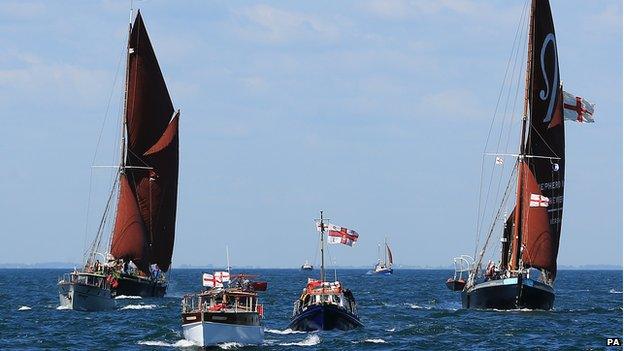
Aside from Operation Dynamo, two other troop evacuations from France were carried out.
Operation Cycle evacuated allied troops from Le Havre from 10 to 13 June 1940.
And Operation Ariel was carried out between 15 and 25 June, transporting many thousands of troops to Britain from locations which included Cherbourg, St Malo, Brest, St Nazaire and La Pallice.
Between Operation Cycle and Ariel, some 191,870 troops were rescued.

The evacuation from Dunkirk
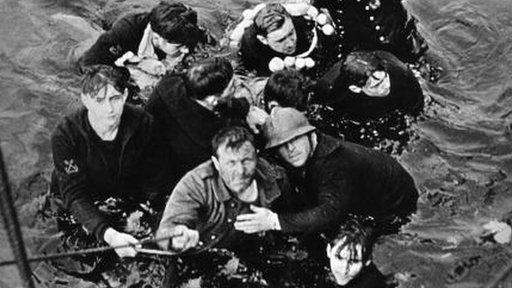
On 20 May 1940 Nazi German troops reached the English Channel at Abbeville in northern France cutting off the British Army
Around 340,000 men, including 121,000 French and Belgian soldiers, retreated to the beaches of Dunkirk
Between 26 May and 4 June a ragtag British fleet, ranging from battleships to pleasure boats, braved the sea to rescue the stranded soldiers
The incredible courage shown by British civilians became known as the 'Dunkirk spirit'
- Published21 May 2015
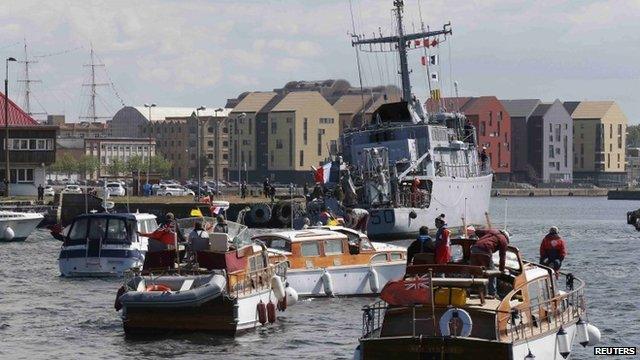
- Published21 May 2015
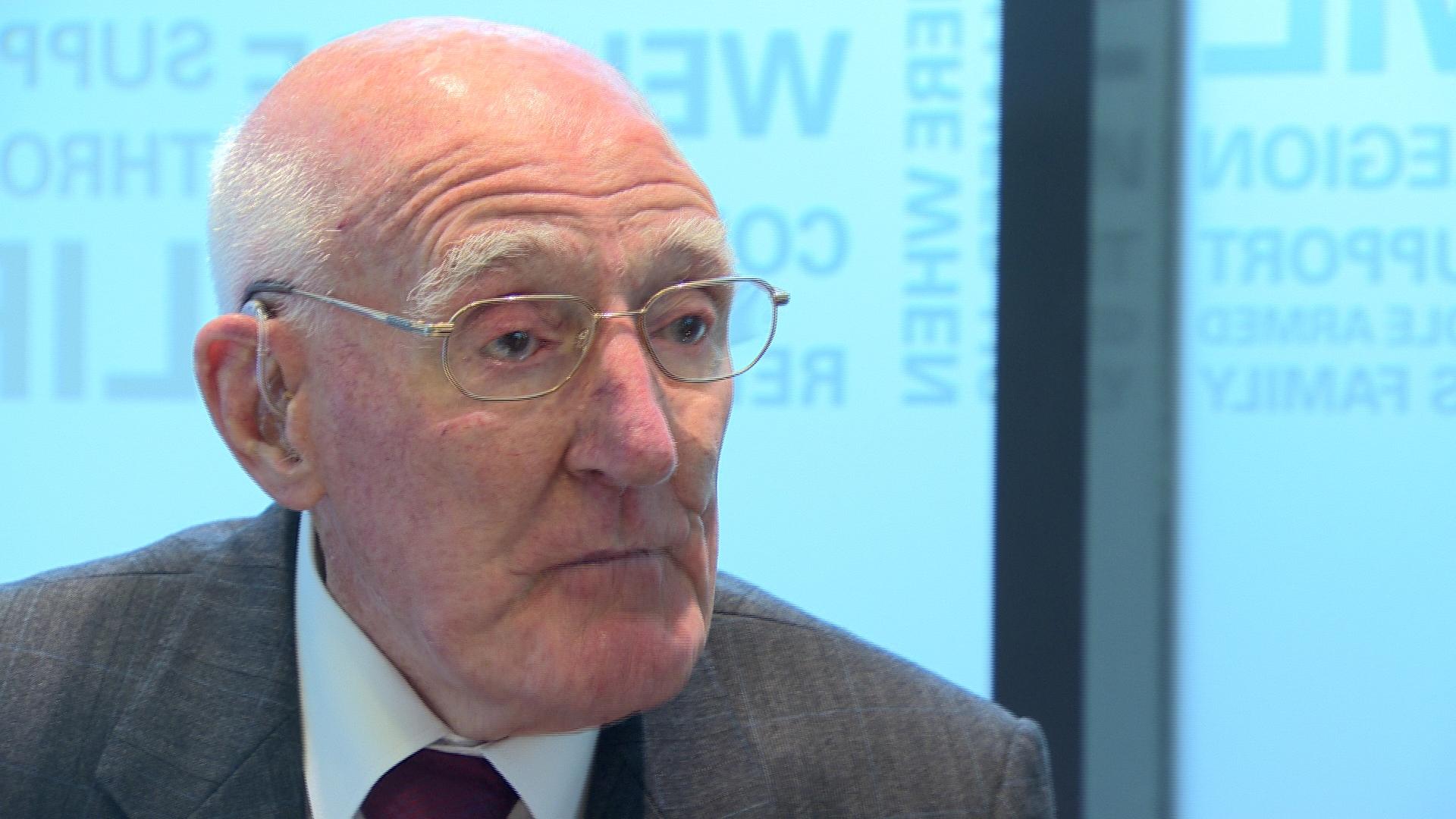
- Published19 May 2015
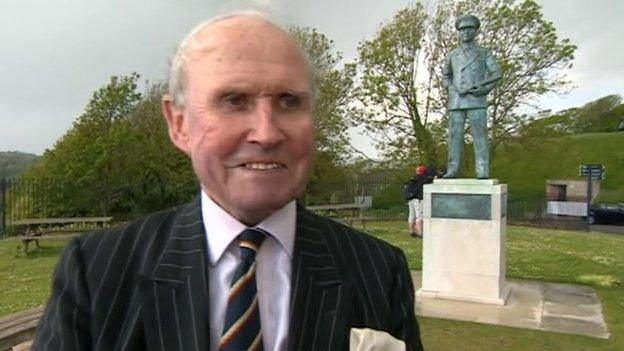
- Published4 April 2015
